Best Jobs After BTech: Career Options After Engineering With Salary

Table Of Content
- Navigating Life After BTech: What Comes Next?
- Best Jobs After BTech And Salary Insights
- How Jaro Helps You Get There
- Chart Your Path Forward with Confidence
Navigating Life After BTech: What Comes Next?
Today’s professionals are increasingly exploring roles beyond core engineering—think data science, product management, AI, fintech, and more. The shift is driven by several factors: industry demand, competitive salary packages, job satisfaction, and opportunities for upskilling. Whether you’re aiming to grow within your technical domain or pivot to a new field, identifying the best jobs after BTech is crucial to long-term career success.
Let’s explore the most in-demand job opportunities after BTech, their salary prospects, the skills they require, and how platforms like Jaro Education can support your transition with world-class learning programs.
Best Jobs After BTech And Salary Insights
Here’s a curated list of the most promising jobs after BTech and salary, spanning core engineering, IT, management, analytics, and emerging tech roles. Each option is evaluated based on salary trends, industry demand, required skills, and advancement potential.
1. Software Developer / Full Stack Developer
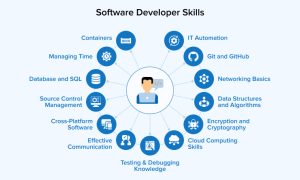
A classic yet ever-evolving choice, software development remains one of the best jobs after BTech in Computer Science, IT, or Electronics.
| Parameter | Details |
| Industry Demand | High (IT, Fintech, SaaS, Startups) |
| Average Salary | ₹4.5 – ₹12 LPA |
| Top Skills | Java, Python, Node.js, React, Git, SQL, Agile methodology |
| Pros | High demand, remote-friendly, good pay growth |
| Cons | Requires constant upskilling, competitive hiring |
Source: GeeksforGeeks
2. Data Scientist / Data Analyst
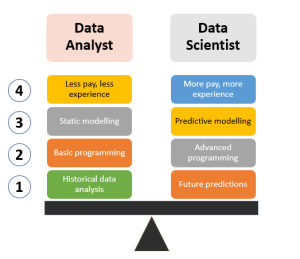
For those inclined towards math, statistics, and programming, data roles are among the best jobs after BTech today.
| Parameter | Details |
| Industry Demand | Growing rapidly across BFSI, e-commerce, healthcare |
| Average Salary | ₹6 – ₹18 LPA |
| Top Skills | Python, R, SQL, Tableau, Machine Learning, Excel |
| Pros | High impact roles, cross-industry demand |
| Cons | Learning curve for freshers without analytics background |
3. DevOps Engineer / Cloud Engineer
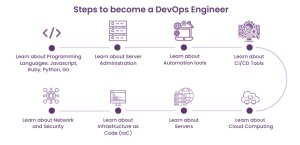
Cloud and DevOps roles have seen a surge due to the digital shift. These are high-paying job opportunities after BTech in IT or Electronics.
| Parameter | Details |
| Industry Demand | Strong (Tech, BFSI, Telecom, Government) |
| Average Salary | ₹7 – ₹20 LPA |
| Top Skills | AWS, Azure, CI/CD, Docker, Kubernetes, Linux |
| Pros | Future-proof, high growth |
| Cons | Requires continuous certifications and technical depth |
4. Artificial Intelligence / Machine Learning Engineer

AI/ML is transforming industries and offers some of the best jobs after BTech in terms of innovation and salary.
| Parameter | Details |
| Industry Demand | High across EdTech, HealthTech, Fintech |
| Average Salary | ₹8 – ₹22 LPA |
| Top Skills | Python, TensorFlow, NLP, Deep Learning, Data Wrangling |
| Pros | Innovative, high salary, cutting-edge work |
| Cons | Demands strong foundation in maths and AI concepts |
5. Cybersecurity Analyst / Ethical Hacker
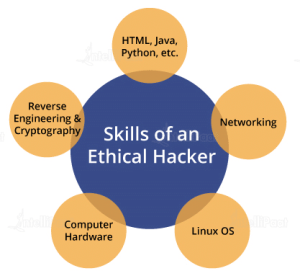
With rising cyber threats, cybersecurity professionals are highly sought after.
| Parameter | Details |
| Industry Demand | Critical in BFSI, Defence, IT |
| Average Salary | ₹5 – ₹15 LPA |
| Top Skills | Networking, SIEM, Pen Testing, Security Tools |
| Pros | Strong demand, job stability |
| Cons | Requires certifications (CEH, CISSP, etc.), can be stressful |
6. Product Manager (Tech)
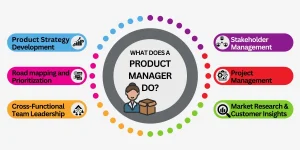
BTech grads with strong communication and strategic thinking skills can excel in product roles.
| Parameter | Details |
| Industry Demand | Booming in SaaS, Tech, Consumer Apps |
| Average Salary | ₹10 – ₹30 LPA |
| Top Skills | Product lifecycle, Agile, UX, Market Research, Communication |
| Pros | Leadership track, high visibility |
| Cons | Demands cross-functional knowledge and experience |
7. Civil / Mechanical / Electrical Engineer (Core Roles)
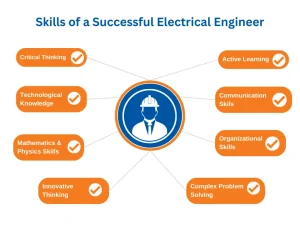
Traditional engineering roles still offer viable jobs after BTech, especially in infrastructure and manufacturing.
| Stream | Average Salary | Industries |
| Civil Engineer | ₹3.5 – ₹9 LPA | Real Estate, Government Projects |
| Mechanical Engineer | ₹4 – ₹10 LPA | Automotive, Aerospace, Manufacturing |
| Electrical Engineer | ₹4 – ₹12 LPA | Power, Energy, Electronics |
Pros: Industry relevance, public sector opportunities
Cons: Limited growth without specialization or higher education
8. Business Analyst
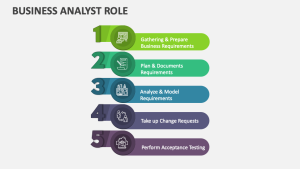
Combining business acumen with tech insights, business analysts act as bridges between teams.
| Parameter | Details |
| Industry Demand | Popular in IT, Consulting, BFSI |
| Average Salary | ₹5 – ₹14 LPA |
| Top Skills | Excel, SQL, Data Interpretation, Communication |
| Pros | Strategic roles, transferable skills |
| Cons | May require an MBA or domain knowledge for advancement |
9. Government and Public Sector Jobs
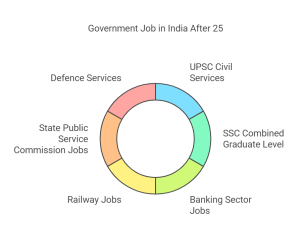
PSUs, defense roles, and civil services are stable, respected jobs after BTech for those preferring structured growth.
| Job Type | Starting Salary | Exam |
| PSUs (like BHEL, NTPC) | ₹6 – ₹12 LPA | GATE |
| Civil Services / IES | ₹9 – ₹15 LPA | UPSC |
| DRDO/ISRO Scientist | ₹7 – ₹13 LPA | GATE + Interview |
Pros: Job security, perks, societal impact
Cons: Competitive exams, limited flexibility
10. MBA & Managerial Roles
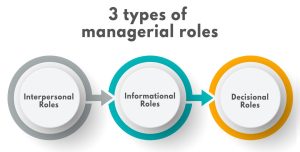
An MBA post-BTech opens doors to finance, marketing, operations, and consulting roles.
| Parameter | Details |
| Industry Demand | Evergreen across sectors |
| Average Salary (Post MBA) | ₹12 – ₹25 LPA |
| Top Skills | Leadership, Business Strategy, Analytics |
Pros: Career shift, higher packages
Cons: Requires 2 years full-time or executive learning
How Jaro Helps You Get There
Navigating these job opportunities after BTech requires more than just a degree. Upskilling with market-relevant programs is key. That’s where Jaro Education steps in as your trusted guide.
Why Choose Jaro?
Jaro Education collaborates with top-tier institutes like IIMs, IITs, and global universities to offer executive and certificate programs designed for ambitious professionals.
Program Highlights:
| Feature | Details |
| Partner Institutes | IIM Ahmedabad, IIT Delhi, Symbiosis & more |
| Learning Format | Online + Live Sessions |
| Duration | 6 – 24 months (depending on program) |
| Ideal For | Working professionals, BTech graduates, career switchers |
| Support Offered | Career counseling, project work, Jaro Connect alumni access |
Explore exclusive programs with India’s top institutes – from Artificial Intelligence to Product Management. Jaro is not a degree-granting institute but a premium service partner helping professionals access high-quality executive and certification programs. It offers:
- Personalized counseling to match your career goals
- Curated upskilling programs based on job market analytics
- Jaro Connect for networking and placement support
Whether you’re looking to boost your salary, transition careers, or explore the best jobs after BTech, Jaro provides the tools and mentorship to get you there.
Chart Your Path Forward with Confidence
Choosing the right path after BTech can feel overwhelming, but it’s also an opportunity to shape your future. With the world embracing digitization, automation, and innovation, the jobs after BTech are no longer confined to traditional roles.
Whether you’re eyeing a high-paying data science job, considering a product management track, or aiming for a government post, the key is upskilling smartly and strategically. That’s where Jaro Education can make all the difference—by offering curated programs, industry-aligned insights, and dedicated support.
Your engineering degree is just the start. Let Jaro help you unlock the next level of your professional journey.
Frequently Asked Questions
Unlike self-paced online videos, Jaro’s programs are in collaboration with premium institutes like IITs and IIMs. They feature live sessions, real-world projects, mentorship, and industry-recognized certifications.
Yes, many Jaro learners have successfully transitioned into new roles by gaining industry-relevant skills in areas like data science, product management, cloud computing, and more. However, actual outcomes vary by individual effort and program chosen.
Yes. Upon successful completion, learners receive a certificate or credential from the partnering institute (e.g., IIM, IIT, or international university), which holds strong industry recognition. These are not generic online certificates but formal acknowledgments from the academic partner.
Get Free Upskilling Guidance
Fill in the details for a free consultation
Find a Program made just for YOU
We'll help you find the right fit for your solution. Let's get you connected with the perfect solution.

Is Your Upskilling Effort worth it?

Are Your Skills Meeting Job Demands?

Experience Lifelong Learning and Connect with Like-minded Professionals

